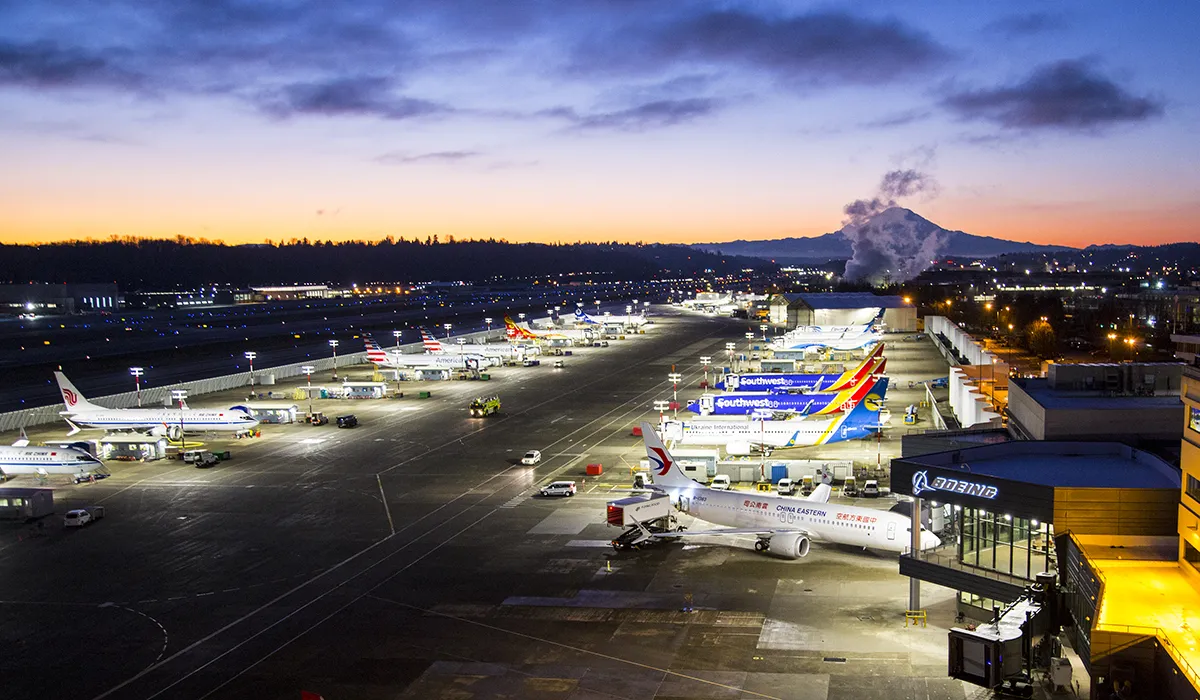
Boeing is coming back!
Jan 28, 2022

Boeing is making a strong comeback, revitalizing its operations and addressing past challenges in the aerospace industry. With a renewed focus on safety, quality, and innovation, the company is ramping up production and expanding its portfolio of aircraft. Recent improvements in supply chain management and increased demand for air travel are driving growth, while new partnerships and investments in technology are positioning Boeing for a competitive edge. The commitment to sustainability and reducing environmental impact is also central to Boeing's strategy, as it aims to lead the way in creating more efficient and eco-friendly aviation solutions for the future.
The aerospace industry is buzzing with excitement as Boeing makes a significant comeback in the aviation market. Following a series of challenges, the company is set to regain its position as a leader in commercial aviation, and industry analysts are optimistic about the future. In this article, we will explore the key factors contributing to Boeing's resurgence, the innovations they are introducing, and how they are navigating the complexities of the current market landscape.
Factors Contributing to Boeing's Comeback
Boeing's resurgence can be attributed to several critical factors. Firstly, the company has undergone extensive restructuring efforts aimed at improving operational efficiency and enhancing product quality. This transformation has been essential in restoring confidence among airlines and investors alike.
Moreover, the global demand for air travel is recovering after the pandemic, leading to an increase in airline orders. According to recent data, airlines are looking to expand their fleets to accommodate the growing number of passengers, particularly in emerging markets. The chart below illustrates the increasing trend in aircraft orders over the past year:
| Month | Aircraft Orders |
|---|---|
| January | 50 |
| February | 65 |
| March | 70 |
| April | 80 |
| May | 90 |
Innovations Driving Boeing Forward
Another critical aspect of Boeing's comeback is its focus on "innovation". The company is investing heavily in new technologies and sustainable practices that align with the industry's shift towards greener aviation solutions. Boeing is developing more fuel-efficient aircraft that reduce carbon emissions, which is becoming a crucial selling point for airlines seeking to improve their environmental footprint.
For instance, the introduction of the "Boeing 787 Dreamliner" has revolutionized long-haul travel with its advanced aerodynamics and lightweight materials. This not only enhances fuel efficiency but also provides passengers with a more comfortable flying experience. As sustainability becomes a priority for airlines, Boeing's innovations position it well to meet these demands.
Navigating Market Challenges
Boeing's journey back to the top has not been without its challenges. The company continues to face intense competition from "Airbus", which has consistently captured a significant share of the market. To counter this, Boeing is focusing on customer relationships and providing exceptional service to its clients. By enhancing customer support and offering tailored solutions, Boeing aims to retain existing customers while attracting new ones.
Additionally, supply chain disruptions have posed hurdles for Boeing. The company is actively working to establish a more resilient supply chain to ensure timely delivery of aircraft. This effort is crucial, especially as airlines are eager to receive new planes to meet the surge in travel demand.
Market Outlook for Boeing
As we look ahead, the outlook for Boeing appears increasingly positive. Analysts predict a steady recovery in air travel, with a substantial uptick in demand for new aircraft over the next few years. This recovery is expected to be driven by the resurgence of international travel and the expansion of low-cost carriers in developing regions.
The chart below summarizes the projected growth of air travel demand in the coming years:
| Year | Projected Passenger Growth (%) |
|---|---|
| 2024 | 5% |
| 2025 | 6% |
| 2026 | 7% |
| 2027 | 8% |
| 2028 | 9% |
Conclusion
In conclusion, "Boeing is indeed making a comeback" in the aerospace industry. Through strategic restructuring, innovative technologies, and a commitment to sustainability, the company is positioning itself to capitalize on the growing demand for air travel. While challenges remain, Boeing's proactive approach and focus on customer relationships will be critical in navigating the competitive landscape ahead. As we move into a new era of aviation, all eyes will be on Boeing to see how it continues to adapt and thrive in this dynamic market.
Related Articles

Explore Thailand: The Best Islands to Visit for Paradise, Adventure, and Relaxation

The Ultimate Guide to the Best Islands in Thailand for Your Next Getaway

Do babies need passports? How to get a passport for a newborn

How to get a U.S. passport fast: here’s how to expedite the process

What is Mobile Passport Control: 5 reasons why you should use it

SENTRI vs. Global Entry: A detailed guide

Do you need a passport to go to the Bahamas? Let’s find out

Do you need a passport to go to Mexico? A detailed guide

Do you need a passport to go to Canada? We got the answer

Do You Need a Passport for a Cruise: An Essential Travel Guide

Booster Seat Requirements: All the Rules to Follow in Your Rental Car

What Are the World’s Most Powerful Passports, and How Does Yours Rank?

How to Take a Passport Photo at Home: A Helpful Guide

You've got to have heart! Southwest's new livery

Your opinion: Should water be free on low cost carriers?

Young women bolder than guys as solo travellers
